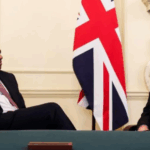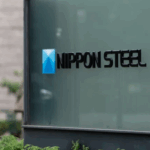Inflation in Ireland has risen slightly, with the Central Statistics Office (CSO) reporting a 0.1% increase in the cost of living for the year ending in October, up from 0% in September. This modest rise is primarily attributed to a significant decline in energy prices, which have decreased by 13.5% over the past year.
Despite the overall trend of falling energy costs, there was a slight uptick of 0.3% in energy prices during October. Meanwhile, food prices have experienced a small increase of 0.4% over the past month and are up by 1.8% compared to the same period last year.
When excluding energy and unprocessed food, the CSO indicates that inflation actually rose by 1.7% over the past year, reflecting broader price pressures in other sectors. The CSO’s data is based on the EU Harmonised Index of Consumer Prices (HICP), which is a standard measure used across European Union countries.
The upcoming release of euro zone inflation estimates by Eurostat is expected tomorrow and will provide further context on the regional economic landscape. In September, the average consumer prices across the euro zone rose by 1.7% year-on-year, highlighting Ireland’s relatively low inflation rate within the bloc.
These figures reflect a complex economic environment where the pressures of global inflation are countered by local factors such as energy price fluctuations. As the cost of living remains a critical issue for many households, the government and economic policymakers are closely monitoring these trends to understand their implications for both consumers and the broader economy.
The CSO’s findings suggest that while inflation is currently low, there are underlying pressures that could affect future price stability. As food prices continue to rise, many households may feel the pinch in their daily expenses, prompting discussions around food security and pricing strategies within the retail sector.
As Ireland navigates these economic challenges, the focus will likely remain on how external factors, including international commodity prices and global supply chain dynamics, will influence inflation in the coming months. With economic recovery efforts ongoing, stakeholders will be watching closely to see how these trends develop, particularly in relation to consumer sentiment and spending.
Overall, while the slight increase in inflation might be seen as a positive sign of recovery from deflationary pressures, it also underscores the need for continued vigilance as Ireland and the euro zone work toward stable and sustainable economic growth.
















